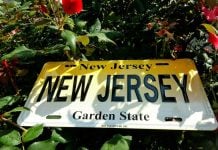Each year, the Massachusetts Gaming Commission (MGC) releases a report on not only the performance of gambling in the commonwealth but also the performance of the MGC itself.
The top-line numbers indicated the continued growth of the casino industry post-COVID, as gross gaming revenues improved to $1.1 billion from $815 million in 2021, which resulted in $311.5 million in tax revenue to the state. Horse racing revenue, on the other hand, fell from $298 million in 2021 to $264 million last year.
The MGC has always placed importance on diversity and challenged each of its sportsbook licensee applicants to bring figures and goals about diversity to their application meetings.
The same holds true for the three casinos in the state, which were challenged to set workforce and supplier goals for the year.
All three properties exceeded their minority workforce goals but struggled to bring the representation of women employees at each property to 50%. Here’s a look at where all three properties landed:
Encore Boston Harbor: 45% women
Plainridge Park: 42% women
MGM Springfield: 40% women
Encore Boston Harbor was also the only operator of the three to miss the goal of employing 3% veterans, coming in at 2%.
Where the casinos struggled much more was in finding minority, veteran, and women-owned suppliers to work with, which is something the sports betting applicants raised as well. Here’s a look at the breakdown from the MGC report:

The MGC also held itself to high diversity standards and reported on its own metrics. The racial breakdown of the group remains overwhelmingly Caucasian at 75%. The group of African-Americans at the MGC did grow to 12%, while 8% of the team identifies as Asian.
Gender split was on the decline at the MGC much like the casinos, dropping from 52.5% female in 2021 to 46% last year.
In an attempt to address these numbers, Chairwoman Cathy Judd-Stein reconvened the Equity and Inclusion Working Group in June of last year. The MGC also hired a Chief People and Diversity Officer (CPDO).














